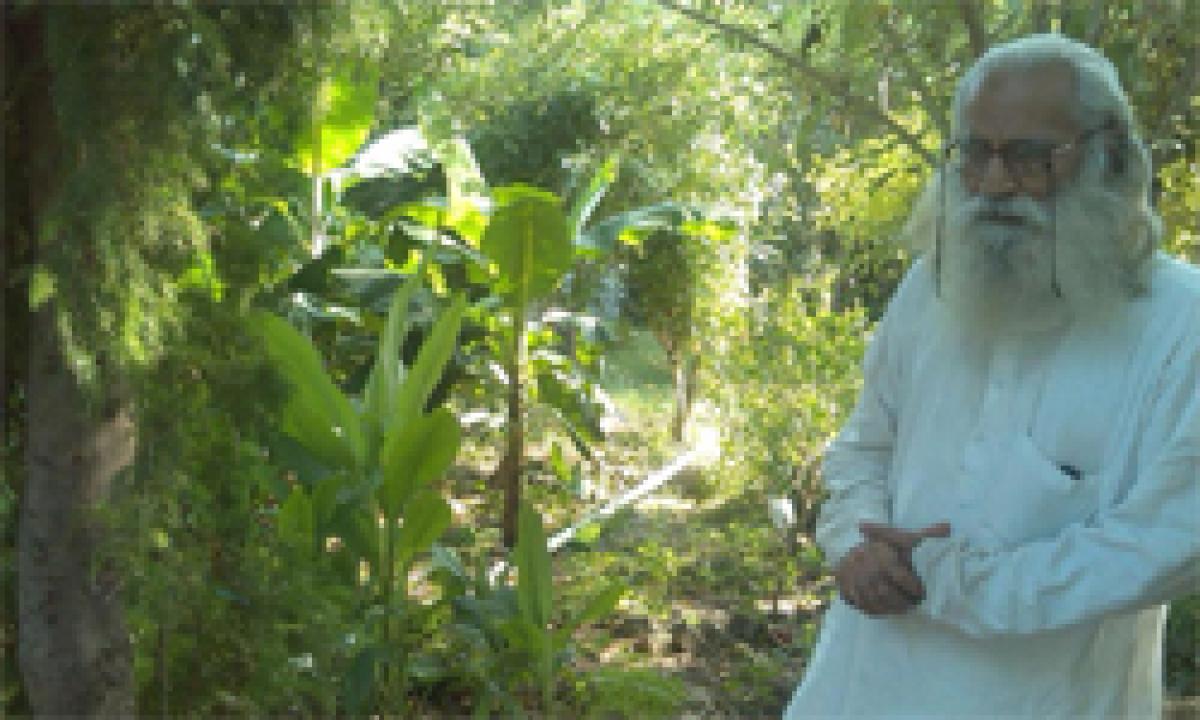Live
- Prateeksha Srivastava says she seldom meets fellow music composers Rusha, Blizza, in person
- KTR Accuses Government of Brutality Against Farmers, Calls for Immediate Action
- Manchu Manoj Attends Shooting Amid Family Controversy
- BWF World Tour Finals: Treesa-Gayatri defeat Malaysian pair to keep semis hopes alive
- MUDA case: Complainant Krishna asks Lokayukta to file new plaint on CM Siddaramaiah on ED’s report
- Airport capex in India to cross Rs 60,000 cr in fiscals 2025-2027 to handle growing traffic: Crisil
- Five-Year-Old Boy Dies After 55-Hour Rescue from Borewell in Rajasthan's Dausa
- Chaos in Parliament over Congress-George Soros link claims, BJP MP poses questions
- Bus Driver Arrested After Deadly Accident in Mumbai’s Kurla; 42 Injured
- Community lunch, a ritual to prevent drought in Adoni
Just In

Albert Einstein, a great scientist, once sent a message to India through his Indian cotemporary late Dr. Amarnath Jha- “India should not adopt chemical fertilizers and insecticides based mechanized farming, because the fertility of land of America has destroyed to a great extent in 400 years of this farming.” But, unfortunately, this advice so crucial to our interest fell on the deaf ears of those sitting on the helm of affairs then.
 Albert Einstein, a great scientist, once sent a message to India through his Indian cotemporary late Dr. Amarnath Jha- “India should not adopt chemical fertilizers and insecticides based mechanized farming, because the fertility of land of America has destroyed to a great extent in 400 years of this farming.” But, unfortunately, this advice so crucial to our interest fell on the deaf ears of those sitting on the helm of affairs then.
Albert Einstein, a great scientist, once sent a message to India through his Indian cotemporary late Dr. Amarnath Jha- “India should not adopt chemical fertilizers and insecticides based mechanized farming, because the fertility of land of America has destroyed to a great extent in 400 years of this farming.” But, unfortunately, this advice so crucial to our interest fell on the deaf ears of those sitting on the helm of affairs then.
And, obviously due two reasons: First and foremost was the lack of confidence on indigenous system of cow-based farming; and, the second was the tendency of blindly imitating everything west, as a last divine truth. Consequently, the hazards of inorganic farming are now there for all to see.

© 2024 Hyderabad Media House Limited/The Hans India. All rights reserved. Powered by hocalwire.com







